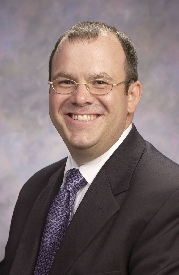University News
June 24, 2008
麻豆传媒内幕Institutes to Conduct Extensive Study on Flood Impact
MACOMB, IL - - While faculty, staff and students at 麻豆传媒内幕 have helped with sandbagging in area communities along the Mississippi River, a new initiative requested by Illinois Gov. Rod Blagojevich ensures the University will be assisting with recovery efforts long after the floodwaters recede.
Representatives from Blagojevich's office recently contacted 麻豆传媒内幕President Al Goldfarb to request that the University provide expertise and technical assistance in determining the economic, environmental and social impact of flooding in the region. Staff and faculty from the Illinois Institute for Rural Affairs (IIRA) at Western, as well as the 麻豆传媒内幕College of Arts and Science's Institute for Environmental Studies (IES) and Geographic Information Systems (GIS) Center will collaborate to plan and facilitate a long-term study.
Christopher Merrett, IIRA director, said the study will begin with data collection on assessment of damage as soon as water levels go down, and will extend over the next three to four years, at minimum.
"Right now we know a lot of people's lives have been disrupted, but we don't fully know the extent of the damage," he said. "The first step will really be about assessment; when things begin to dry up, the [government is] basically going to say, 'what is the damage?'"
State agencies collaborating on the project include the Illinois Department of Agriculture, the Illinois Department of Economic Opportunity (DECO), Illinois Environmental Protection Agency (EPA) and the University of Illinois, among others.
Once the assessment phase is completed, the committee of state agencies, including Western's faculty, will develop a plan that would ideally assist in recovery efforts after another flood.
"As we've seen with the aftermath of Hurricane Katrina, there are still things we're learning years afterward," Merrett said.
The economic aspect of the study will take into account the "ripple effect" of the flooding beyond the monetary value of destroyed property, Merrett explained.
"In addition to objects鈥攑hysical or direct losses鈥攚e will be taking into account indirect losses, such as lost salaries and wages, lost productivity...basically disruption. For example, loss of sales tax in a community affects school districts because property and sales taxes affect school funding."
Roger Viadero, IES director, said the University's institutes are ideally situated to aid in restoration efforts.
"The affected area is in our region, and with our expertise, we can provide the sociological analysis in terms of restoration of critical infrastructure like potable water supply, water/waste-water services, and looking at them in relation to public health," Viadero said.
However, Viadero pointed out, the overall purpose of the project is not solely a scholarly one.
"It's a tremendous opportunity to help out and potentially to do things better in the future," he said. "We've been taking students, faculty and staff from the Department of Biological Sciences and IES to help with sandbagging efforts in Warsaw. We just want to be good neighbors, trying to do what we can."
Posted By: University Communications, University Relations
Phone: (309) 298-1993 * Fax: (309) 298-1606


